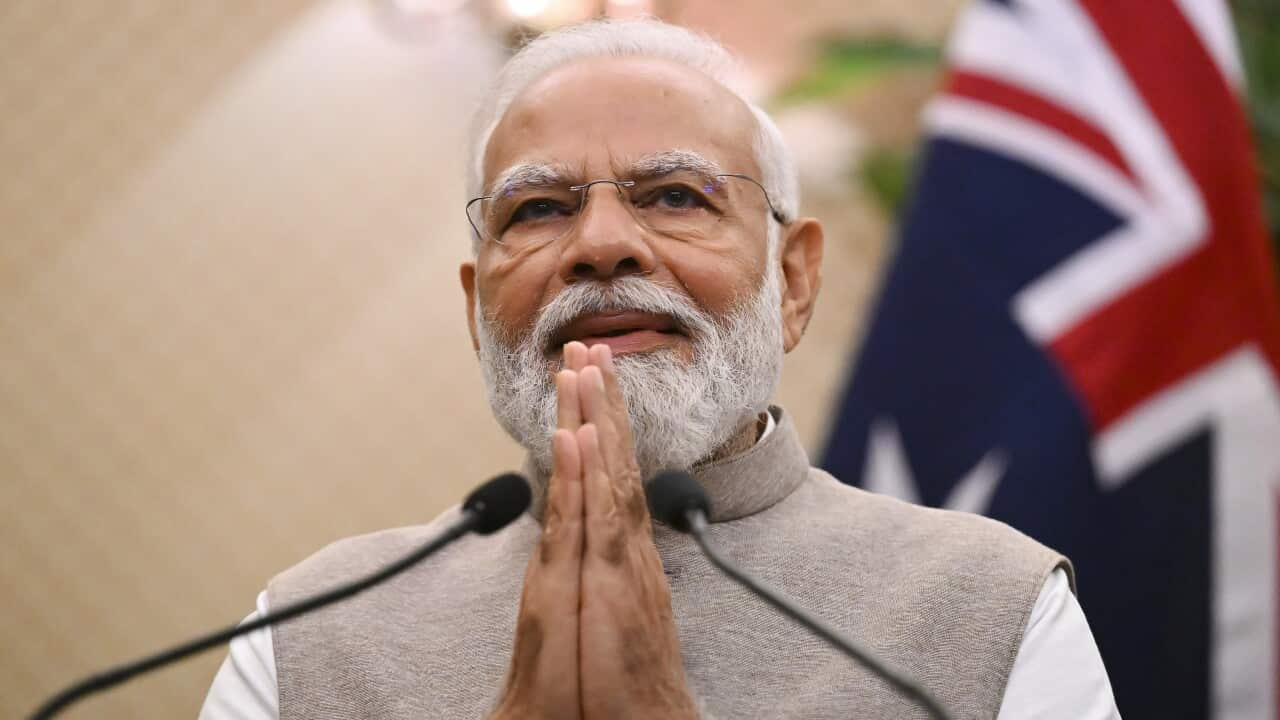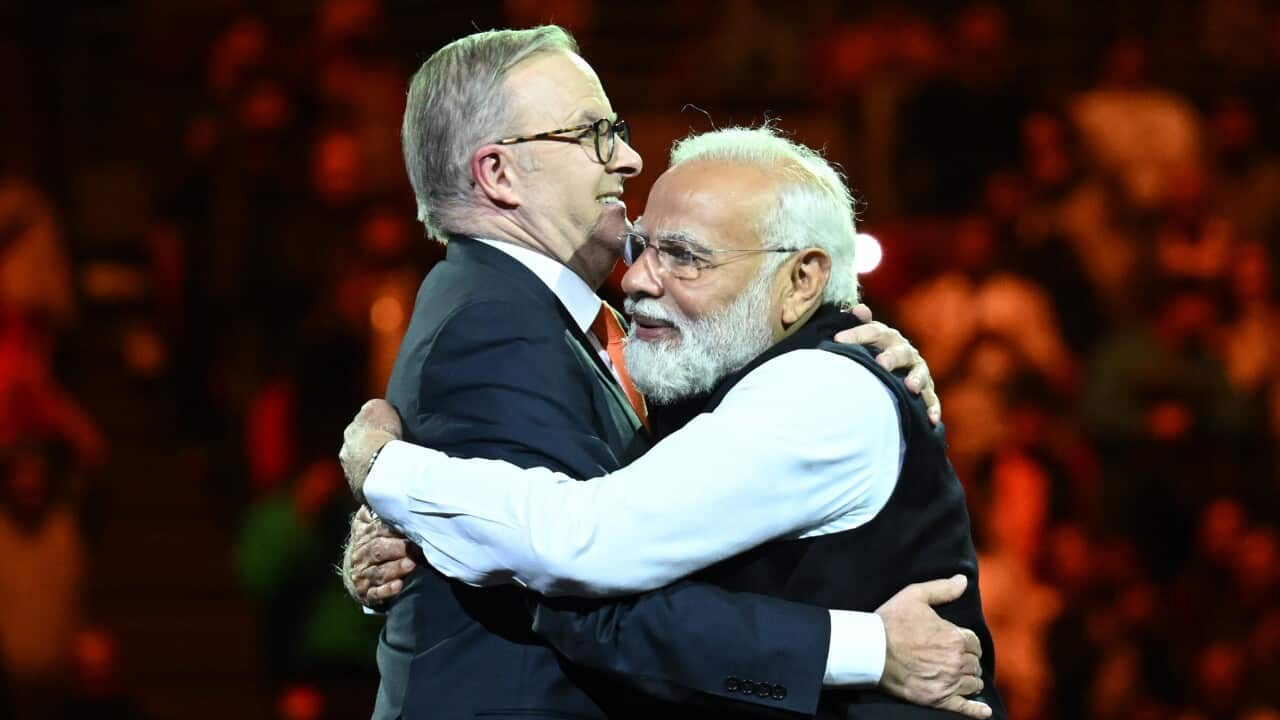KEY POINTS:
- A documentary about Narendra Modi, banned in India, has aired in Parliament.
- A Greens senator says we should call out human rights abuses, but 'welcome' our own criticism.
- Mr Modi received a raucous reception at a Sydney event.
Greens senator Jordon Steele-John says he feels "real anger" over Anthony Albanese's failure to discuss human rights in India with Prime Minister Narendra Modi, but says he must be willing to accept criticism of Australia's own failures.
Mr Modi has just wrapped up a three-day visit to Australia for bilateral talks on trade, business, investment and migration.
Mr Albanese introduced his Indian counterpart at an event attended by 20,000 people in Sydney on Tuesday before the pair posed for pictures in front of the Sydney Opera House which was lit up in the colours of the Indian flag on Wednesday.
At the same time, around 50 people of a documentary . The documentary explored his alleged role in the 2002 Gujarat riots, which killed more than 1,000 people, mostly Muslims. The Indian government banned the BBC program over what they claimed was a lack of objectivity.

Jordon Steele-John says Australia must also front up to its own failings. Source: AAP
Senator Steele-John, born in England, accepted there was "often a double standard" from Western countries when it came to discussing human rights, citing suffering inflicted on Indigenous Australians and the "systematic extraction of wealth" perpetrated by his country of birth in India.
But he told the gathering of around 50 people that his "disappointment" with Mr Albanese had hardened into "real anger" after learning the prime minister had not raised the situation in India with his counterpart.

Indian Prime Minister Narendra Modi (left) and Anthony Albanese are photographed in front of the sails of the Sydney Opera House illuminated in the colours of the Indian flag in Sydney. Source: AAP / Dean Lewins
"We need to speak frankly. We also need to be prepared to be spoken frankly to, in return, as to our human rights abuses."
Senator Steele-John said many of the criticisms outlined in the BBC documentary were "mirrored ... by political leaders in this very building", including discrimination faced by Muslims and other minorities.
Official figures state more than 1,000 people - overwhelmingly Muslims - were murdered during a three-month outbreak of violence in Gujarat, sparked by the burning of a train which killed 59 Hindu pilgrims.
Mr Modi was Gujarat's chief minister at the time, and has long denied claims he ordered police not to intervene. A special investigation concluded in 2012 that there was no sufficient evidence against him.
But the allegations resurfaced in January when the BBC documentary - India: The Modi Question - uncovered a UK government report from the time, which found Mr Modi was "directly responsible" for creating a "climate of impunity" for the rioters.
The report found a campaign of violence bore "all the hallmarks of ethnic cleansing", including the systematic rape of Muslim women.
The documentary alleged that British officials had spoken to sources who claimed Mr Modi met with police officers and ordered them not to intervene in the violence. Mr Modi has always vehemently denied the allegations.
Mr Modi's government used emergency powers to ban the documentary, criticising what it called the BBC's lack of objectivity and "continuing colonial mindset".
Soon after, BBC offices in New Delhi and Mumbai were raided by tax department officials in what they insisted was an unrelated investigation.










